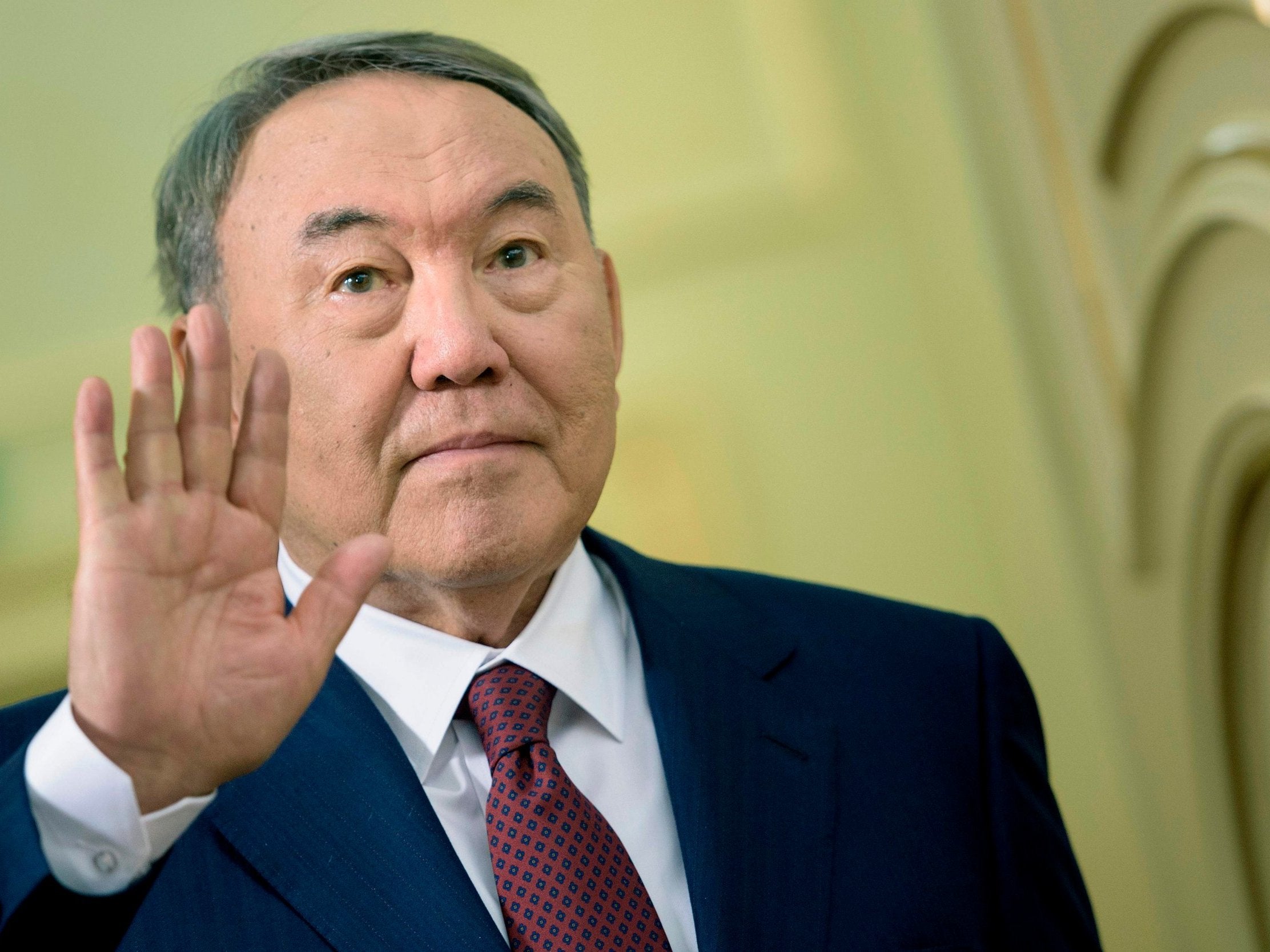The Independent's journalism is supported by our readers. When you purchase through links on our site, we may earn commission.
In Kazakhstan, the last Soviet era president has suddenly resigned – and this is what it means for my people
Nursultan Nazarbayev stood down on Tuesday after thirty years. But his manoeuvring since already suggests he is uneasy with giving up any of his hard fought power

Kazakhstan, a post-Soviet oil-rich Central Asian country of 18 million people and the 9th largest territory in the world has just undergone a historical moment of epic proportions. The first and only president of Kazakhstan Nursultan Nazarbayev has voluntarily resigned after nearly three decades in power.
This news came as a shock to the world and to the people of Kazakhstan. For us, the younger generation under 30 – and we are nearly half of the country’s population – he was the only president we ever knew. The news has provoked a mixture of shock, excitement, fear and hope.
Of course, we should have no illusions that such a powerful man would abruptly step down without negotiating a deal that would allow for his further presence in Kazakh political life. For those who are not familiar with the region, it is safe to say that Central Asian leaders do not like to share their power. They tend to rule until death as in Uzbekistan in 2016 and Turkmenistan in 2006. Kazakhstan has decided to take a different route – but perhaps not so different as it turns out.
First of all, Nursultan Nazarbayev is already the longest ruling Soviet-era leader who was in charge of Soviet Kazakhstan in 1989, overseeing its transition away from Soviet control and later becoming president of independent Kazakhstan in 1991. In many ways, he has done a tremendous job to put the country on firm feet. In the 1990s after the collapse of Soviet Union, the inflation rate alone was 3000 per cent and the planned economy model was broken. From the ailing Soviet economy the chances of having anything near what we have now happened due to the tireless negotiations with potential investors, decision-makers, politicians and of course, the discovery of vast oil and gas fields. After ruling the country for so long, you get attached to what you do. There will be many attempts (and successful ones) by the ex-president to influence key decisions from behind the scenes.
Secondly, Kazakhstan, as like most of its neighbours, is an authoritarian country and there is no real political opposition or independent, strong media that can initiate public discussions on important matters. One has to read between the lines to understand the implications of, at first sight, trivial decisions.
When Nazarbayev initiated the amendments to the constitution to give more powers to parliament and the government in January 2017, many viewed it as a positive sign. But when he initiated the legal changes in the country’s Security Council body, granting it more power to secure “peace and stability” in the country, he became its lifelong chair in May 2018. Many experts argued the operation of a transit of power had already started. Indeed, the powers of Security Council were more comprehensive, and its chair is even more powerful than the president. Nazarbayev was both chair and the president.
When people discussed his possible resignation, he persuasively refuted these rumours, hinting that there was still plenty of time and who knows, he might run again. This was all part of the plan – but the timing of the news still has everyone in shock.
Can much change in 24 hours? After his resignation at 7pm of 19 March, the next day I saw, for the first time of my life, another president. Kassym-Jomart Tokayev, now former chair of the upper house of parliament senate, will serve as interim president according to the constitution until the upcoming presidential elections in December 2020. He was sworn-in at midday in the capital Astana and while people were still trying to make sense of these seemingly dramatic political changes, he excitingly announced that Astana should be renamed “in honour of the first president”. Parliament unanimously supported his decision.
As most Kazakhstanis in Astana that day were coming home from work, little did they know that by the time they arrived back their capital’s would now be Nursultan. All of the major avenues in all cities of Kazakhstan will also be named after Nazarbayev. The legacy of yesterday’s president will be far-reaching. Meanwhile, the ex-president’s daughter Dariga Nazarbayeva was elected as the chair of the senate, taking the second most powerful position in the country.
We Kazakhstanis have already got used to the fact that our voices do not play an important role in the policymaking processes. Today’s events – the predictable manoeuvring to secure Nazarbayev’s legacy – has proved that for the next few years everything will probably stay the same. Despite that, those few hours of excitement on Tuesday – when events inspired us to believe things could be different – give me hope that a brighter future for the country is possible.
Aigerim Toleukhanova is a freelance journalist based in Almaty, Kazakhstan. She covers Kazakhstan and Central Asia and has contributed to EurasiaNet, Esquire Kazakhstan, Foreign Policy, The Diplomat and The Washington Post
Join our commenting forum
Join thought-provoking conversations, follow other Independent readers and see their replies
Comments
Bookmark popover
Removed from bookmarks